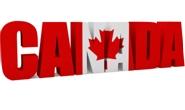Canada

August 13, 2016
Canada Extends AD/CVD Duties on HR Sheet and Strip
Written by Sandy Williams
The Canadian International Trade Tribunal has renewed its dumping finding against China, Brazil and Ukraine and its subsidy finding against India in regards to the import of hot rolled steel sheet and strip. The CITT decision extends antidumping and subsidy duties another five years.
In a press release from Essar Steel Algoma, applauding the decision, Algoma said:
“The CITT’s finding of likely resumed injury follows a decision by the Canada Border Services Agency (CBSA) that resumed dumping is likely from China, Brazil and Ukraine and resumed subsidization is likely from India if duties were removed. Imports of hot-rolled sheet from the three dumping countries are subject to duties equal to 77% of the export price of the goods. Imports of hot-rolled sheet from India are subject to duties of 3,150 Indian Rupees per metric tonne.
Due to their unfair trade practices, hot-rolled sheet imports from these countries have been subject to duties in Canada since August of 2001. Today’s decision from the CITT marks the third time that these duties have been renewed.”
Essar Algoma CEO Kalyan Ghosh called the CITT decision a positive development for the Canadian steel industry but said, “We remain very concerned about the continued presence of unfairly traded steel in the Canadian market. We are especially concerned in light of the ongoing proceedings against hot-rolled sheet from various countries in the United States, which could divert higher volumes of dumped steel into Canada.”
Ghosh added, “We will remain vigilant in monitoring and addressing the threat that unfairly traded hot-rolled sheet poses to our company’s viability and to jobs in Sault Ste. Marie and Canada more broadly.”






